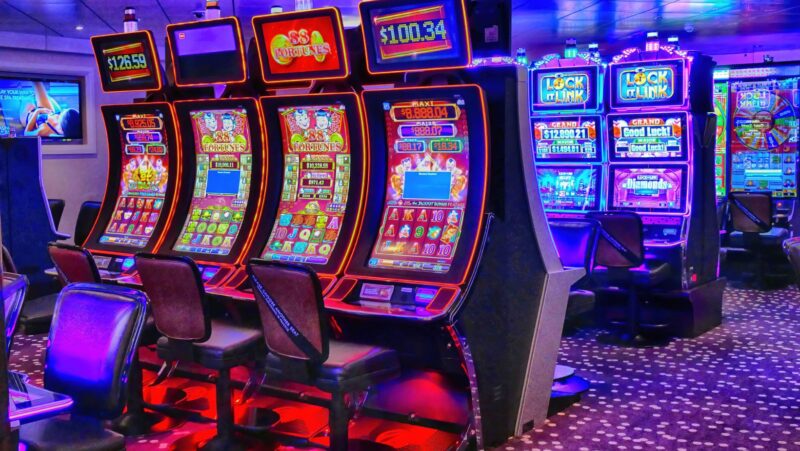Slot machines have long been a staple of casinos, drawing in players with their flashing lights, enticing sounds, and the promise of hitting the jackpot. However, behind the glitz and glamour lies a darker truth – the link between slot machines and gambling addiction. As players chase the elusive jackpot, many find themselves caught in a cycle of compulsive gambling that can have devastating consequences on their finances, relationships, and overall well-being.
In this article, we will explore the intricate relationship between slot machines and gambling addiction, shedding light on the psychological mechanisms at play and the impact it can have on individuals and society as a whole. By understanding the complex web of factors that contribute to this addiction, we can better equip ourselves to address and combat this pressing issue.
The allure of the jackpot: How slot machines draw in players
 Slot machines have an undeniable allure that draws in players from all walks of life, enticing them with the potential to hit the jackpot and win big. From the flashing lights and enticing sounds to the thrill of watching the reels spin in anticipation, slot machines have a way of captivating players and keeping them coming back for more.
Slot machines have an undeniable allure that draws in players from all walks of life, enticing them with the potential to hit the jackpot and win big. From the flashing lights and enticing sounds to the thrill of watching the reels spin in anticipation, slot machines have a way of captivating players and keeping them coming back for more.
The promise of a life-changing win is what drives many players to keep playing, even in the face of mounting losses. With the odds stacked against them, players continue to chase the jackpot, hoping that one lucky spin will change their fortunes for the better. This relentless pursuit of the elusive jackpot is what fuels the addictive nature of slot machines and ultimately leads to the development of gambling addiction in some individuals.
The hidden dangers: Recognizing the link between slot machines and gambling addiction

Recognizing the link between slot machines and gambling addiction is crucial in understanding the hidden dangers that come with the thrill of chasing the jackpot. While the flashing lights, catchy sounds, and promises of instant riches may seem enticing, the reality is that slot machines can lead to a serious and debilitating addiction for many individuals.
The repetitive nature of playing slots, combined with the near-win experiences and intermittent reinforcement, can create a perfect storm for compulsive behavior. Its important for both individuals and society as a whole to recognize the potential harm that these machines can cause and take steps to address it before it spirals out of control. By shedding light on this often overlooked issue, we can work towards creating a safer and more responsible gambling environment for all.
Understanding the psychology: Why slot machines can be so addictive

The allure of slot machines lies in their ability to provide instant gratification and the possibility of winning a large sum of money with minimal effort. The flashing lights, spinning reels, and enticing sound effects create a sense of excitement and anticipation that keeps players coming back for more.
Additionally, the intermittent reinforcement schedule used in slot machines – where wins are unpredictable and occur at random intervals – taps into the same psychological mechanisms that drive addiction.
This unpredictability, combined with the dopamine rush that comes with winning, can create a powerful urge to keep playing, leading to a cycle of chasing losses and seeking that elusive jackpot. In this way, slot machines exploit our natural desire for excitement and reward, making them particularly addictive for vulnerable individuals.
Conclusion
In conclusion, it is evident that there is a strong link between slot machines and gambling addiction. The flashy lights, enticing sounds, and the potential to win big all contribute to the allure of these machines. However, as we have seen in the case of Kakek Merah Slot, this can lead to destructive behavior and financial ruin for those who become hooked.
It is important for individuals to be aware of the risks associated with gambling and to seek help if they find themselves struggling with addiction. Only by understanding the underlying psychological factors at play can we hope to break free from the cycle of chasing the jackpot.


